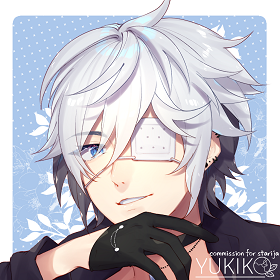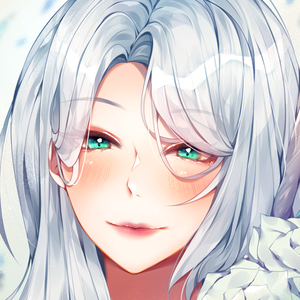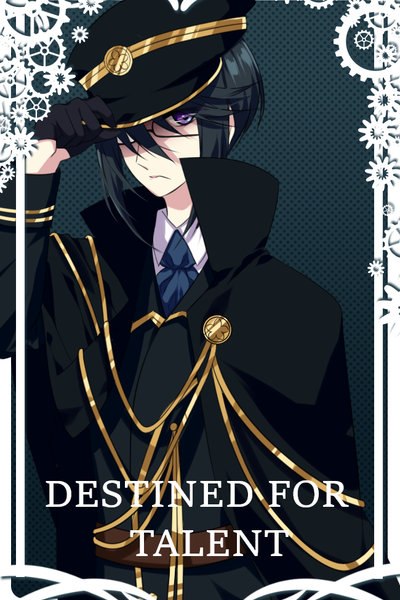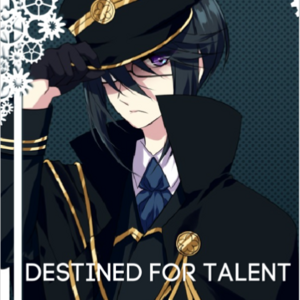Two meters away from where Dillon sat was the one man he dreaded seeing every three months, or less distantly in the future with more occurrences of a war. At a height of five feet, seven inches, he had pallid skin, light azure eyes lending a frosty image, and combed blond hair ending just at his nape. He had been a history scholar in the Scholar Sector for at least a decade, giving him a reputation as one of the most disciplined and experienced scholars in the field. Not only that, but he was trained to counsel his visitors, both soldiers and citizens, as well, building up a vast quantity and quality of experience in counseling and therapy for people ravaged by war. Most clients liked him for his array of knowledge and his ability to withhold judgment, speak gently but honestly, and provide effective advice to change their thoughts and feelings. It helped that his medical billing of all clients was covered by the military.
At this appointment, however, Dillon wasn't the only one dreading their sessions. His scholar did as well—every one of his scholars did, because Dillon was not a common or even normal case. Normal cases were grieving, enraged, or prone to impatience and fits of temper at having to deal with their vulnerabilities and living a normal life in the midst of war. They were predictable and sometimes solvable.
Yet Dillon would conduct his record narratives and counseling sessions from within an icy, frozen solid exterior, consuming incredible hours of the scholar's time to thaw enough to get something emotionally conducive for a psychological counsel. That was why, as a special case for one as strong and well connected as Dillon, he received two one and a half hour sessions with the Scholar Sector. In total he would spend three hours with Dr. Winston, with a good 10 minutes of the beginning being wasted in stilted silence. Of course, Cedric, who was waiting outside for his session after Dillon, would not wait the full three hours doing nothing. He arrived with Dillon only so that he could ensure he made it to his appointment, for fear of him ditching it.
Winston touched his hands together as he gazed across at Dillon. His audio recording device, used only for his sessions, was powered on already. "So you are now a General Soldier. The badge suits you. Congratulations."
"Thank you." Stiff at best from parched lips, Dillon's tone was monotonous.
"Were you not so slow to show the true worth of your leadership skills, of which no one has ever doubted you had, and if you actively improved on the parts of your character to allow you to move on in times of grief and reflection, which we've discussed numerously during our sessions, you would have been promoted months ago." He sighed, taking no pleasure in any of the words no matter how truthful. "Instead you continue to mope around, hang by the deceased longer than active war permits, and fall behind due to the severe depth of your emotions. It persists even now after you've finally risen—I see it in your inflexible mannerisms right before me. No doubt your guidance will be hindered by this limitation, this refusal of yours to adjust."
His eyes softened. "Do you understand your predicament?"
Winston would not budge either on the notion of adjusting to Dillon's exasperating character, never one to lie about progress on the records of counseling sessions. For all the praise on his attitude and success rate in therapy and counseling, however, he seemed particularly preachy and condescending to Dillon in the way he criticized his lack of improvement. Despite this opinion, he was not wrong. For that, and so they could go on with their lives, he would make an effort, difficult as it was. For now, they needed to discuss the previous war. The further the time passed since the war, the more likely a soldier would forget the details of their combat, thus the history records would have to be made vague or would be liable to scrutiny. Fortunately, Winston was skilled at filling in the blanks or drawing out memories, though Dillon had a decent memory of his own.
"I do," he said. He breathed in, then out. To Winston's surprise, he continued to speak, "On the noon of Melo, I was initially assigned to defend the tower and cities at Tower 7 with four other allies, as it was in one of the most pressing danger at Level 5 Flame Damage."
Usually their sessions wasted 10 minutes with them simply staring at each other, as otherwise Dillon would be unable to utter more than a couple of short phrases. No matter what Winston said, the conversation would remain at a stalemate. This time only five minutes had passed. It was getting shorter with each appointment. Initially, Dillon, with the power to match that of three barrier soldiers, was often sent to the Kingdom's Towers—these were the most important areas to protect because they were the outer walls that guarded their habitats—for the formation of his barriers, which, due to the strength of his power, were always double barriers. Double barriers were thicker and less transparent than the single barriers that the average barrier user were able to make. They made up twice or thrice the amount of time or strength needed to melt or break such a barrier, if possible in the first place.
As for the 'Level 5 Flame Damage' Dillon spoke of, it was the second to last level in a ladder of levels that applied to the amount of physical damage caused by Volcano's fires. There were also other names in the ladder system, such as Flame Duration for the length of time a fire burned, Smoke Inhalation for areas affected the most by smoke, Burn Damage for areas most affected by infliction of burns on people or animals, and Flame Risks for areas actively impacted by Volcano Terrorists or Users as they burned and harmed buildings, objects, dead or unconscious bodies, or living creatures.
Winston was still surprised at his sudden start of the narrative, but he wouldn't ignore a gem like this. "Who were those allies?"
"Richard, Osaic, Madeline, Izasel. They were the best among our team. We set out, but our course was rough and dangerous as usual. Brick paths full of hazardous sharp ice, water in holes strewn about, a few broken homes and storefronts. A group of children were lost, so we let Richard lead them to a safe area and proceeded ahead. We passed streets and towns at least applicable of Level 3 Burn Damage and Flame Damage. Places that did not have assigned soldiers or units yet. I was...torn between losing my direction and giving aid to those in need, but knew my destination still needed me. Townspeople cried for our help. How do I refuse—simply because I'm a soldier? Everyone knows I can't. But as I was helping, Osaic tore me away and my heart hurt for it. Though we extinguished whatever fire we could."
He wondered if he was right in detecting a tone as Dillon spoke Osaic's name. There was a slight hitch amid the robotic narrative.
"They would be Soldiers Osaic Rybec, Madeline Asane, Izasel Tori, and Richard...I believe, Duvel Winter, correct?" Winston questioned as he consulted his notebook. The names of Dillon's team were written in the notebook, which was always in his lap to aid the smooth proceeding of his recordings. The named soldiers in the Barrier Unit had remained with Dillon since his transfer into their team eight months ago. He was familiar with them because of Dillon's narratives.
"The same people. The top five of team 0-18. Richard found us as we marched the streets. I noticed a few soldiers in the Crystallizing and Barrier Units scattered about, a few in Team 0-9, working their tired souls and limbs away. Seems that there may not have been that many terrorists around, or some of the Level 5 areas were contained, seeing that there were soldiers in these Level 3 or 4 areas. Though that is assuming they were not just helping while moving to their mission, the same way we did."
"Was there anyone you remember in particular?"
"Soldier...Tywen. Soldier Annette and Soldier Dimon of Team 0-9."
"How is Dimon's name spelled?"
"I think it is spelled D-I-M-O-N. They're all I remember. One of the soldiers used their crystal sword to lift a large chunk of debris, presumably to free someone who was trapped, so they must have run out of power or at least was nearly drained." The fact that they used a sword instead of their crystallizing power to lift the debris, which was much stronger and quicker, implied they had run out of power.
For crystal soldiers to use their power of forming and manipulating crystals, whether glass or ice, they would tap into the energy in their personal souls, the source of all elemental power, that was located deep within the heart. Once depleted they would be unable to crystallize until they gained sufficient rest. The more relaxed their rest period was, the more power they would refuel. Some powers had a rare condition in which the user may draw from a separate source, but there were only three recorded incidents in all of known history. One such person lived in their present time, a notorious individual in the Island of Volcano. The thing that was most incredible about this special power was that the source may be infinite, as in the case of a volcano for the mentioned fire user, as long as they remained connected to the source. It was fortunate that the gene to inherit such a power was so rare that some eras and centuries would pass without realizing a separate source of power.
"Perhaps," Winston said.
Dillon sipped water from his cup, allowing himself only a tiny drop that did nothing for his throat. "Every time I passed a slip safety hazard, or another ill victim, I lent myself to them, Osaic dragging me by the coat and Madeline cajoling me all the way to the Tower. It's somehow encouraging when comrades never give up on you, I found myself thinking, even as I lent my time again." At this point the memory should be punctuated by a brief chuckle, if only in falsehood, but of course he couldn't break his machine-like narrative. Trained to perfection for months, it was resistant to any kind of change or attitude in language.
"You can't change yet, and neither can they. Your comrades understand you." He would say no more. Doing so would interrupt the narrative; doing so at all may be disruptive on its own, but Winston knew that the timing of his comments was as important as the words themselves. Hence, even in the case of Dillon's hardened shell, he would throw them in on occasion.
He blinked. Other than that his stony face was unmoved. "I wasted precious minutes, but the citizens have lives as well. Who am I to call any of it a waste? If they are not waste, then I have to get everyone's time back."
It was not yet the moment for Winston to inquire and delve into the issues behind Dillon's empathic state in the midst of a crisis, as he was prone to do in their sessions. Recording was for historical records. Therapy was for inquisitive counseling. He noted down his inquiry in the notebook.
"One native grabbed my attention, calling for help by the door of a complex. Even from far away I could see the pants burning away on one of his legs. I asked him, has he rolled on the floor? As I extinguished it for him, he said it wouldn't stop even when he rolled. The crystallizing fire extinguisher was, as to be expected, nowhere to be found. I'm yet again baffled that we don't have more extinguishers in our streets, given the situation. When a crisis happens, they're always disappearing like crystal pops at the doctor's."
Winston nodded his agreement. Many soldiers complained of this problem with the extinguishers, claiming that one accessible extinguisher per public street was not enough, that they were never available when one was needed. The reason must be that one civilian took it for themselves and passed it off to another as soon as they finished with it, as it would never return to its place until all crises passed.
The Kingdom of Crystal was a nation well known for its plentiful resources and abundance of wealth; with such an amount to accommodate a frequent series of demanding wars and combat dangers, surely a few more extinguishers in the streets would be nothing to the government. When asked about the reason, Third Prince Caspian would shake his head gravely, refusing to say a word to anyone. If he was not allowed to tell, it definitely had something to do with a secret political matter, either because of the royal family or eastern island governments. Perhaps even because of the Island of Volcano itself.
"Was this man burned by a terrorist then? Or did he accidentally come into contact with one of their fires?"
Because rolling on the ground did not extinguish the fire, it was either too severe or was a fire made by a Volcano terrorist. A fire being manipulated was not easy to put out by normal means, especially ones made from special sources like the ones in the terrorists' hands. For example, volcanoes, gas igniters, coals, torches, oil burners, solar outlets, fire outlets, and even fire enhancement books. When a great number of these outside sources combined with their souls, the fire the user manipulates transforms into one a little more special. Of course, just a single outside source would not be enough to transform the fire into a special one. Ice and water crystals from a crystallizing user, or crystallizing fire extinguishers, would be enough to put such a fire out.
"Yes, most likely. He wore a special pair of pants, however, so his leg was luckily unharmed. He told me he waited for help for five minutes, unable to move lest the fire spread to his other extremities. It would have left him in critical condition, or dead, if not for the pants." Dillon's voice was robotic as usual, but his dark eyes betrayed the depth of his inner emotions in its shaking pupils, as if he could not look straight. "I'm glad for the recent passing of these crystal-infused clothing articles. How benevolent our government is."
If not for the lack of feeling in his tone, the sarcasm of his last statement would cut through reinforced crystal. The recent passing of crystal-infused clothing that Dillon was referring to was the passing of The Second Act of Crystal Protective Gear, the second version of The Act of Crystal Protective Gear, in which an untold quantity of crystal-infused clothes were provided free of charge, or some at an unfairly affordable price, to millions of citizens in the kingdom. The Second Act was to provide another round of crystal-infused clothing, only this time even more than in the original act.












Comments (0)
See all